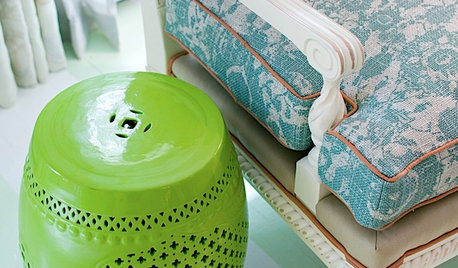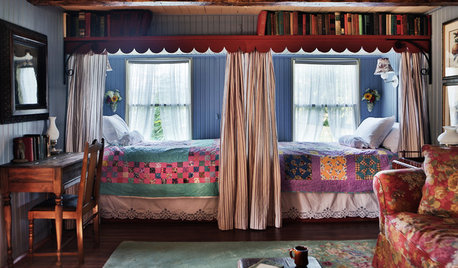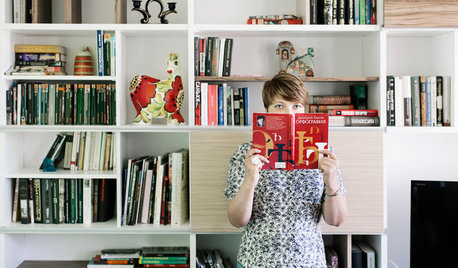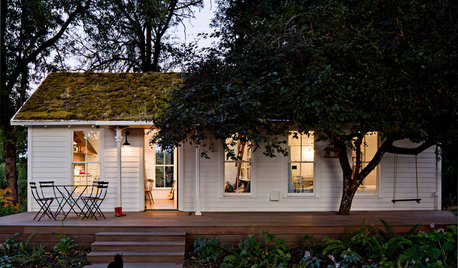Favorite and/or Most Used Reference Books?
elliottb
17 years ago
Related Stories

MOST POPULARThe 20 Most Popular Bathrooms of 2015
Get a handle on bathroom trends with a look at readers’ favorites this year
Full Story
KITCHEN DESIGNPlain-Sight Storage for the Kitchen Stuff You Use Most
Turn essential cookware, tools and even spices into design assets by displaying them out in the open
Full Story
DECORATING GUIDESThe Most Helpful Furniture Piece You May Ever Own
Use it as a table, a seat, a display space, a footrest ... and indoors or out. Meet the ever-versatile Chinese garden stool
Full Story
MOST POPULARThe 10 Most Popular Houzz Ideabooks of 2013
Kitchen remodeling help and favorite wall paints top the list; see what other design topics got everyone's attention this year
Full Story
BEDROOMSThe 20 Most Popular Bedrooms of 2015
Whether expansive and luxe or tight and cozy, Houzzers’ favorites are places where we’d fall asleep as soon as our heads hit the pillows
Full Story
HOMES AROUND THE WORLDWorld of Design: 11 Book Lovers and Where They Like to Read
Bibliophiles across the globe reveal their top books and favorite reading spots, from a 2-story library to an artfully curated book nook
Full Story
HOUZZ TOURS25 Most Bookmarked Houzz Tours of 2012
Brimming with design solutions, creative layouts and memorable architectural touches, these homes topped the interest charts this year
Full Story
HOME OFFICESThe 20 Most Popular Home Office Photos of 2015
Technology paves the way for space-saving work areas, while designers make up for small sizes with style
Full Story
MOST POPULARThe 25 Most Popular Photos Added to Houzz in 2013
See the newly uploaded images of kitchens, bathrooms, bedrooms and more that Houzz users really fell for this year
Full Story




cjoseph
anyanka
Related Discussions
Looking for Book for Aloe Reference
Q
What are your favorite reference books for annuals and/or flowers
Q
how to move address book & favorites using export/import?
Q
What is your most cherished and well used cook book ?
Q
ccrdmrbks
agnespuffin
cindydavid4
twobigdogs
woodnymph2_gw
netla
carolyn_ky
Bumblebeez SC Zone 7
ccrdmrbks
cjoseph
rambo
elliottbOriginal Author
mumby
donnamira
cjoseph
cindydavid4
ccrdmrbks
carolyn_ky
veer
ccrdmrbks
agnespuffin
cindydavid4
carolyn_ky
anyanka
georgia_peach
elliottbOriginal Author
cindydavid4
socks